 Finally, the opening night of the Texas high school football season! Fight songs and Frito-Pie, pep rallies and pom-poms, booster club cookouts and homemade signs, game programs filled with local ads wishing the kids luck and hot chocolate in the Thermos, shoe polish on the car windows and new paint on the bleachers, touchdowns and tackles, clapping for the other school’s band, great catches and dramatic picks, momentum, crossing your fingers before the 34-yard field goal, and “why don’t we throw (or run or blitz or stunt or screen or fake or trap or zone) more?” Amarillo High’s Golden Sandies open up at home tonight against Odessa. We’ll be tailgating with some of our best friends in the Bivins Stadium parking lot at 7:00 and in our seats on the 30-yard line in plenty of time for the 8:00 kickoff.
Finally, the opening night of the Texas high school football season! Fight songs and Frito-Pie, pep rallies and pom-poms, booster club cookouts and homemade signs, game programs filled with local ads wishing the kids luck and hot chocolate in the Thermos, shoe polish on the car windows and new paint on the bleachers, touchdowns and tackles, clapping for the other school’s band, great catches and dramatic picks, momentum, crossing your fingers before the 34-yard field goal, and “why don’t we throw (or run or blitz or stunt or screen or fake or trap or zone) more?” Amarillo High’s Golden Sandies open up at home tonight against Odessa. We’ll be tailgating with some of our best friends in the Bivins Stadium parking lot at 7:00 and in our seats on the 30-yard line in plenty of time for the 8:00 kickoff.
“Blow, Sand, Blow!”
~~~~~~~~~~~~~~~~~~~~~
 I shared with you last time the first half of an interesting article by Sean Palmer regarding our corporate singing when we gather as God’s saved people. His question — and it’s a good one — is “what would church look like if we re-framed corporate singing as a spiritual discipline?” You can click here to read the article in its entirety.
I shared with you last time the first half of an interesting article by Sean Palmer regarding our corporate singing when we gather as God’s saved people. His question — and it’s a good one — is “what would church look like if we re-framed corporate singing as a spiritual discipline?” You can click here to read the article in its entirety.
To re-cap the first part of his article upon which we reflected in the last post, our corporate singing is viewed by many of us as an individual pursuit. It’s funny because we can’t do corporate singing by ourselves. It has to be done together, as a group. But we think and act like we want all the songs picked out and sung just for us. We enjoy, celebrate, bemoan, criticize, and judge our worship assemblies based mainly on what we personally like. And that’s wrong, wrong, wrong, for a whole long list of reasons.
Allow me to give you today Palmer’s second half of the article with my own comments sprinkled in. These are five things he believes would change in our churches, five things that would result for all of us, he thinks, if we were to view our singing together as a spiritual discipline.
1. We wouldn’t expect immediate results. No faithful practitioner of spiritual disciplines expects to walk in, practice a discipline for an hour, and leave humming a tune and tapping their toes. In the realm of spiritual practices, we know that a blessing is found in the practice itself. You could practice contemplative prayer for years without any tangible outcome, uplifting feeling, or goosebumps. But you come to love and enjoy practicing the presence of God.
Randy Harris says his second great fear about practicing contemplative prayer is “What if something happens?” His number one greatest fear  about contemplative prayer is “What if nothing happens?” The point of a spiritual discipline is to enter the practice in complete submission to God, giving yourself entirely to him, and inviting him to do with you exactly what he wants. It’s to be present to God, present with God, available to be used by God as he wishes. Isn’t it enough — isn’t it everything! — to bask joyfully in the glory that is communion with Christ and his saints? I’m singing with God’s people in the holy presence of God, for cryin’ out loud! Does it matter that it’s not my favorite song? This “audience of one” idea is not good for our worship theology. God is not an audience in our worship. We’re not performing anything for God. He’s not sitting back on his heavenly throne just soaking up our praise and prayers. Our God is active in our worship. He is moving us and changing us and blessing us and speaking to us and growing us together in our worship. Maybe I won’t see it or feel it at the moments. Maybe it’ll take months or years. But it’s enough to just sing with my brothers and sisters in the knowledge that I’m being transformed.
about contemplative prayer is “What if nothing happens?” The point of a spiritual discipline is to enter the practice in complete submission to God, giving yourself entirely to him, and inviting him to do with you exactly what he wants. It’s to be present to God, present with God, available to be used by God as he wishes. Isn’t it enough — isn’t it everything! — to bask joyfully in the glory that is communion with Christ and his saints? I’m singing with God’s people in the holy presence of God, for cryin’ out loud! Does it matter that it’s not my favorite song? This “audience of one” idea is not good for our worship theology. God is not an audience in our worship. We’re not performing anything for God. He’s not sitting back on his heavenly throne just soaking up our praise and prayers. Our God is active in our worship. He is moving us and changing us and blessing us and speaking to us and growing us together in our worship. Maybe I won’t see it or feel it at the moments. Maybe it’ll take months or years. But it’s enough to just sing with my brothers and sisters in the knowledge that I’m being transformed.
2. We could sing on behalf of others. There are songs I hate, like “Amazing Grace.” I’ve never liked it. But I know “Amazing Grace” is tremendously meaningful for others. A friend recently shared with me the place of the song “Amazing Grace” in the recovery movement. The song means a great deal for members of AA and other recovery groups. Those folks are in my church. As a spiritual discipline, I can sing that song — though I despise it — on their behalf. I sing, therefore, not because it’s efficacious for me, but for those around me.
 To me, this is the most powerful and practical and understandable of Palmer’s five reasons. This is the logic I have used for years when I speak or write about the evils of personal preference tainting our holy worship of God. The really unfortunate thing here is that he uses the words “hate” and “despise” to describe his own feelings about the classic hymn “Amazing Grace.” How can you be a Christian and not like “Amazing Grace?” Seriously.
To me, this is the most powerful and practical and understandable of Palmer’s five reasons. This is the logic I have used for years when I speak or write about the evils of personal preference tainting our holy worship of God. The really unfortunate thing here is that he uses the words “hate” and “despise” to describe his own feelings about the classic hymn “Amazing Grace.” How can you be a Christian and not like “Amazing Grace?” Seriously.
We’ll know that Christ is being formed in us when we can joyfully sing other people’s songs. Maybe a younger person doesn’t care for “How Great Thou Art.” It’s too slow and the language is weird. But that younger person realizes how much that song means to all the older people in the room. He loves these older brothers and sisters. They are his Christian family. And this song really moves them. It reminds them of faithful friends, of long gone relatives, or of sweet moments in other locations. They absolutely love this song. It’s one of their favorites. So, the younger person sings it with all of his heart, soul, and strength. He sings this song he doesn’t really like for the sake of all the people in the room who totally love it. He sings it at the top of his lungs with gusto and enthusiasm, because he knows it brings so much joy to so many other people around him. He’s blessing them. In the same ways, an older person may not be really fond of “Mighty to Save.” It’s too long and the tempo is weird. But that older person realizes how much that song means to all the younger people in the room. She loves those younger brothers and sisters. They are her Christian family. And this song really moves them. It reminds them of the summer camp or the youth retreat, of a mission trip or some other really transformative event in their lives. They absolutely love this song. It’s one of their favorites. So, the older person sings it with all of her heart, soul, and strength. She sings this song she doesn’t really like for the sake of all the people in the room who totally love it. She sings it at the top of her lungs with gusto and enthusiasm, because she knows it brings so much joy to so many other people around her. She’s blessing them.
Serving other people, meeting the needs of others, considering them more important than you, is very Christ-like. It’s extremely Christ-like. In fact, it’s the very essence of who Jesus is. Our King came to this earth not to be served, but to serve. I wonder why we can’t come to a worship assembly for 75-minutes with the same attitude.
3. We could be less manipulative. I hate to be the one to tell you, but many worship experiences are designed to manipulate your feelings. That’s not all bad. Church leaders should want you to do something at the end of a service, and music is frequently used to disarm congregants toward that end. Anecdotally, Christian Rich Mullins was approached by a fan. The fan said, “I was really moved during that song going into the third verse. I felt the Spirit.” Mullins responded, “That wasn’t the Spirit; that was when the kick-drum came in.” Perhaps as a spiritual practice, all of us would be more open to simply allowing God to move in our midst rather than modulating up the last chorus, jumping around, turning up the volume, and hosts of other tricks we invent to gin up the congregation.
It’s a weird cycle for worship leaders and preachers and those charged with planning worship assemblies.And a trap. Most of us, by nature, are people-pleasers. We enjoy the pats on the back and the words of affirmation and appreciation for our hard work and our wonderfully executed sermons and song-leading. And we can be overly focused at times on getting things to feel and move just right. I’m guilty of this. I’m one of the worst. More energy! More volume! More drama! More interaction and participation! More, more, more! In moments of serious personal reflection, I sometimes wonder if our God is saying less, less, less. 
4. We could hear the God of the desert. Perhaps God doesn’t want us to sing the songs we love. Might it be possible that some of us have come to praise our worship and worship our praise when the call of God is for us to go into the desert, to experience emptiness in an area of life on which we have come to overly depend? If so, could all of the church-hopping and in-fighting over music over the last twenty years been our avoidance of entering the space in which God wants to lead us? Could it be possible that one of the reasons we’re not experiencing greater engagement with God is because we have abandoned his voice and chosen a tune we like? We must never forget, before Jesus begins his life of impact, he goes into the desert.
To treat singing in a worship assembly as a spiritual discipline would be to faithfully sing the songs that are given to us at that time. It would be to ask God to lead us where he wants us to go in our singing. It would be submitting to his voice and his will in our worship. I try to personally find the voice of God in every word that is said to me by a brother or sister in Christ. I believe God speaks to us through other faithful people. He communicates with us and teaches us this way. So, even if I’m being hollered at by a church member who wants to wring my neck (hasn’t happened in a while; whew!), I try to assume there’s some truth to what he is saying to me. Somewhere in his criticism is a nugget of something I really need to hear and pay attention to. Shouldn’t we also view our corporate singing the same way? Somehow, as I sing this song I don’t really like, God is speaking to me. Somewhere in this lousy song with the simple notes and shallow lyrics is a bit of eternal truth about our holy Creator. Shouldn’t I sing that song with the intention of listening for that? Shouldn’t the assumption always be that God is doing something here?
5. We could actually praise God. We have to ask ourselves serious questions about the nature of who we worship when we walk out of common worship upset with God-directed music and lyrics, regardless of whether or not the praise team was “singing our tune.” If corporate singing were a spiritual discipline, God would be at the center of it. And in God’s presence, humankind has always simply bowed.
Peace,
Allan
 Whitney and I took in the annual Rumble at Ratliff last night as the Odessa Permian Panthers battled Odessa High in the rain and the chill of a West Texas Friday night . It was the District 2-6A opener for both teams and the energy was high. This was our first trip to historic Ratliff Stadium, the home of Friday Night Lights, the place and the team Buzz Bissinger introduced to the whole world in 1990. And my oldest daughter and I were immersed in and impressed by the whole MOJO experience.
Whitney and I took in the annual Rumble at Ratliff last night as the Odessa Permian Panthers battled Odessa High in the rain and the chill of a West Texas Friday night . It was the District 2-6A opener for both teams and the energy was high. This was our first trip to historic Ratliff Stadium, the home of Friday Night Lights, the place and the team Buzz Bissinger introduced to the whole world in 1990. And my oldest daughter and I were immersed in and impressed by the whole MOJO experience.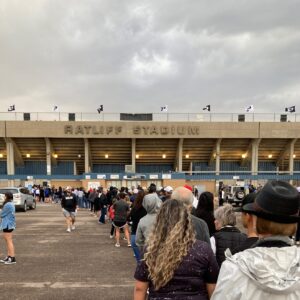 Little did we know that getting to the stadium 25-minutes before kickoff was too late. The line of cars – more trucks than cars, of course – was still backed up to the main road early in the second quarter. Whitney and I made it to our seats, on the 20-yard line about halfway up on the Permian side, in time to see the Panthers score a touchdown on their opening drive. And they just kept scoring. A 98-yard touchdown drive. A 75-yard touchdown drive. The boys ran a lap around the field after every score, bearing massive flags with the Permian “P.” The final flag in the line, the MOJO flag, declared itself to be “The 7th Flag Over Texas.” It was electric.
Little did we know that getting to the stadium 25-minutes before kickoff was too late. The line of cars – more trucks than cars, of course – was still backed up to the main road early in the second quarter. Whitney and I made it to our seats, on the 20-yard line about halfway up on the Permian side, in time to see the Panthers score a touchdown on their opening drive. And they just kept scoring. A 98-yard touchdown drive. A 75-yard touchdown drive. The boys ran a lap around the field after every score, bearing massive flags with the Permian “P.” The final flag in the line, the MOJO flag, declared itself to be “The 7th Flag Over Texas.” It was electric.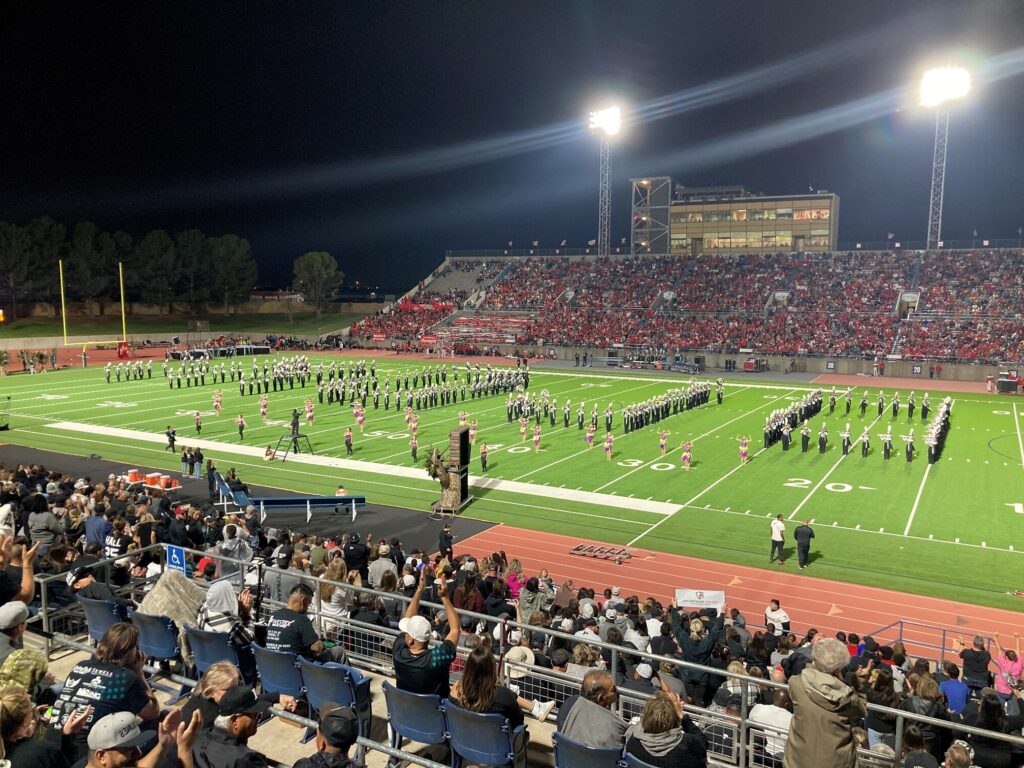


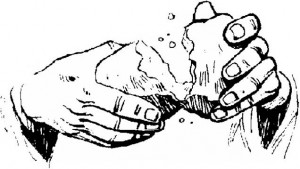
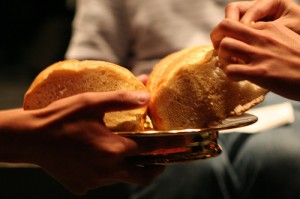

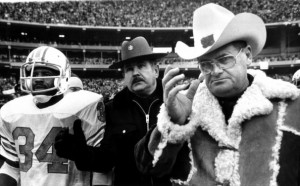
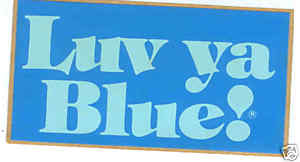







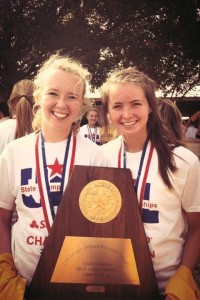

Recent Comments